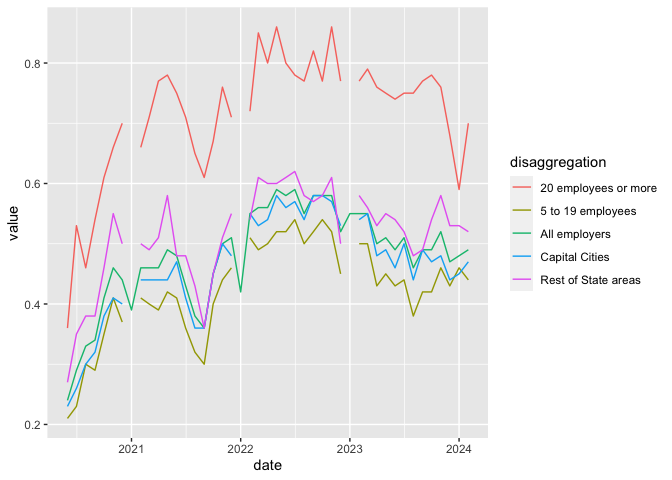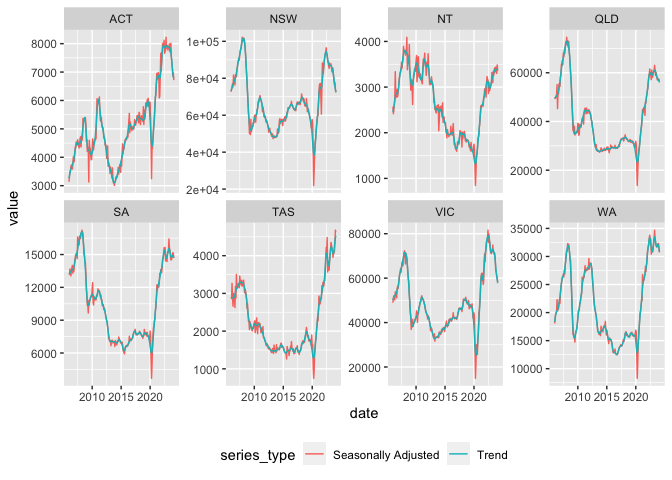{readjsa} streamlines the process of getting data from Jobs and Skills Australia into R.
Note that this package is marked experimental. The code is stable, but brittle. Any changes by JSA to its data and how it’s distributed are likely to break the functionality of the package, at least temporarily.
You can install the development version of readjsa from GitHub with :
# install.packages("devtools")
devtools::install_github("MattCowgill/readjsa")At the moment, {readjsa} can be used to get data from the Recruitment
Experience & Outlook Survey (REOS) or the Internet Vacancy Index (IVI).
The functions for doing so are read_reos and read_ivi respectively -
see below for more.
It’s straightforward to get data from the JSA REOS:
library(readjsa)
library(ggplot2)
library(dplyr)
#>
#> Attaching package: 'dplyr'
#> The following objects are masked from 'package:stats':
#>
#> filter, lag
#> The following objects are masked from 'package:base':
#>
#> intersect, setdiff, setequal, union
reos <- read_reos(tables = "all")
reos |>
filter(
series == "Recruitment rate",
frequency == "Monthly"
) |>
ggplot(aes(x = date, y = value, col = disaggregation)) +
geom_line()There are several different tables in the IVI data, at different levels
of aggregation. See ?read_ivi(). In the example below, we’re
visualising total job vacancies at the state level.
ivi_states <- read_ivi("2dig_states")
ivi_states |>
filter(
level == 1,
state != "AUST"
) |>
ggplot(aes(x = date, y = value, col = series_type)) +
geom_line() +
facet_wrap(~state,
scales = "free_y",
nrow = 2
) +
theme(
legend.position = "bottom",
legend.direction = "horizontal"
)

